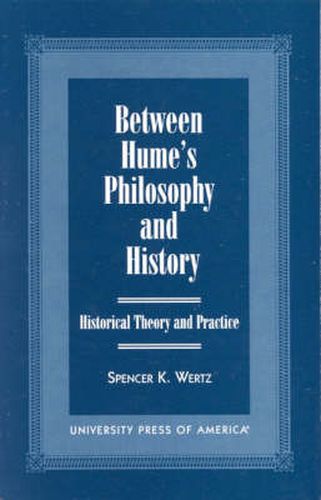Readings Newsletter
Become a Readings Member to make your shopping experience even easier.
Sign in or sign up for free!
You’re not far away from qualifying for FREE standard shipping within Australia
You’ve qualified for FREE standard shipping within Australia
The cart is loading…






This book explores the historical dimension of David Hume’s philosophy, a feature that Spencer Wertz calls ‘historical empiricism.’ According to Wertz, Hume sought to understand the present in terms of the past in a way that anticipates the historical constructionism of R.G. Collingwood and Herbert Butterfield. Hume’s method is to tell a story about something’s origin in which ideas yield impressions. These impressions eventually yield to experience that includes history as part of its structure. Arguing that Hume worked between history and philosophy, Wertz demonstrates that Hume’s historical empiricism consists of four key concepts. These concepts are history, human nature, experience, and nature, all of which play a role in historical narration, taste, moral judgments, and the historiography of science. Bringing new insights to the study of Hume’s work, this book will be an important resource for scholars of philosophy.
$9.00 standard shipping within Australia
FREE standard shipping within Australia for orders over $100.00
Express & International shipping calculated at checkout
This book explores the historical dimension of David Hume’s philosophy, a feature that Spencer Wertz calls ‘historical empiricism.’ According to Wertz, Hume sought to understand the present in terms of the past in a way that anticipates the historical constructionism of R.G. Collingwood and Herbert Butterfield. Hume’s method is to tell a story about something’s origin in which ideas yield impressions. These impressions eventually yield to experience that includes history as part of its structure. Arguing that Hume worked between history and philosophy, Wertz demonstrates that Hume’s historical empiricism consists of four key concepts. These concepts are history, human nature, experience, and nature, all of which play a role in historical narration, taste, moral judgments, and the historiography of science. Bringing new insights to the study of Hume’s work, this book will be an important resource for scholars of philosophy.